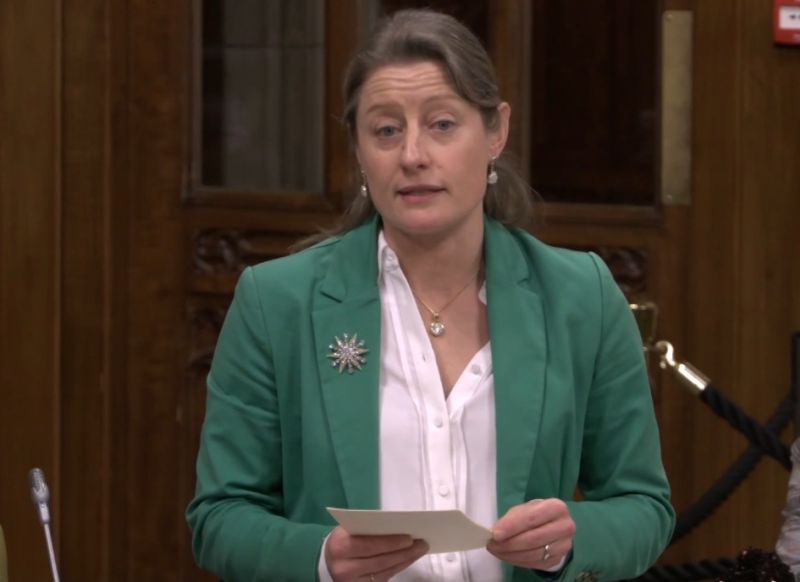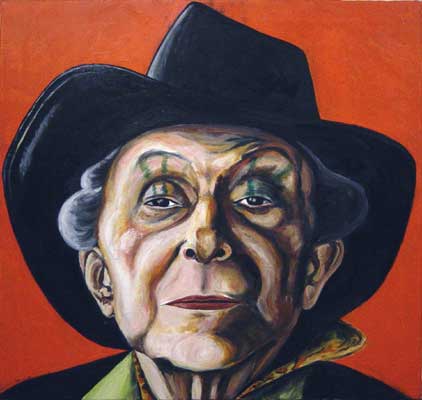Surrey celebrates LGBTQ+ month
Surrey History Centre celebrates the February LGBTQ+ month with, among many others, the story of local born Quentin Crisp, who attended Kingswood School in Epsom. Born in Sutton and named Denis Charles Pratt in 1908, he changed his name in his twenties, had a colourful and controversial career and died in 1999.
“I started to wear make-up because it was necessary for me to live out my life getting up, going to work, buying food and going home again, so that someone could be seen to be homosexual and to be part of life.”
This quote, following the screening of his acclaimed work The Naked Civil Servant, encompasses Quentin Crisp’s attitude to his appearance and homosexuality – it was vital to his individuality, something on which he refused to compromise.
Throughout his life Crisp was a controversial figure; within the gay community he was not liked by everyone. However, his contribution to the gradual acceptance of openly gay men is universally acknowledged.
Early Years
Born Denis Charles Pratt in 1908 in Sutton, then part of Surrey, he was the fourth child of Charles and Frances Pratt, a solicitor and a former governess.
Attending Kingswood Preparatory School in Epsom, Crisp was mercilessly teased for his effeminate behaviour. In 1922, he won a scholarship to Denstone College, near Uttoxeter, and on leaving in 1926, studied journalism at King’s College London. Failing to graduate, he then took art classes at the Regent Street Polytechnic.
Leaving home to move to central London at the end of 1930, Crisp adopted his new name and cultivated an effeminate appearance that shocked many and provoked homophobic attacks.
Crisp attempted to join the army at the outbreak of the Second World War but was rejected and declared exempt by the medical board on the grounds that he was ‘suffering from sexual perversion’. He left his job as engineer’s tracer in 1942 to become a model in life classes in London and the Home Counties. He continued posing for artists into the 1970s. “It was like being a civil servant,” he explained in his autobiography, “except that you were naked.”
Fame, acceptance and America
Crisp became a gay icon after the publication of his memoir, The Naked Civil Servant (1968), brought his exhibitionism and refusal to remain in the closet to the attention of the general public. In 1975, a film adaptation of The Naked Civil Servant was broadcast on British and American television making both actor John Hurt and Crisp household names. Crisp declared himself one of the great stately homos of England.
Afterwards Crisp developed a one-man speaking show that toured Britain but he still felt like an outsider. In 1981, Crisp moved to New York where, experiencing a fuller sense of social acceptance, he continued his one-man show, An Evening with Quentin Crisp.
During his extraordinary life Crisp wrote a number of influential, controversial and provocative works, and acted in a variety of television dramas, films and stage plays, the last being the film Orlando with actress Tilda Swinton.
Just short of his 91st birthday, Quentin Crisp died in November 1999, in Manchester on the eve of a nationwide revival of his show. With a minimum of ceremony his body was cremated and his ashes flown back to the US and scattered across his beloved Manhattan………. “
You can read more of this story and others from the Surrey History Centre HERE and use its interactive map to find out about the lives of gay figures who lived or had connections with the County of Surrey.
Courtesy Surrey History Centre
Image – painting by Ella Guru of Quentin Crisp – creative common licence



















